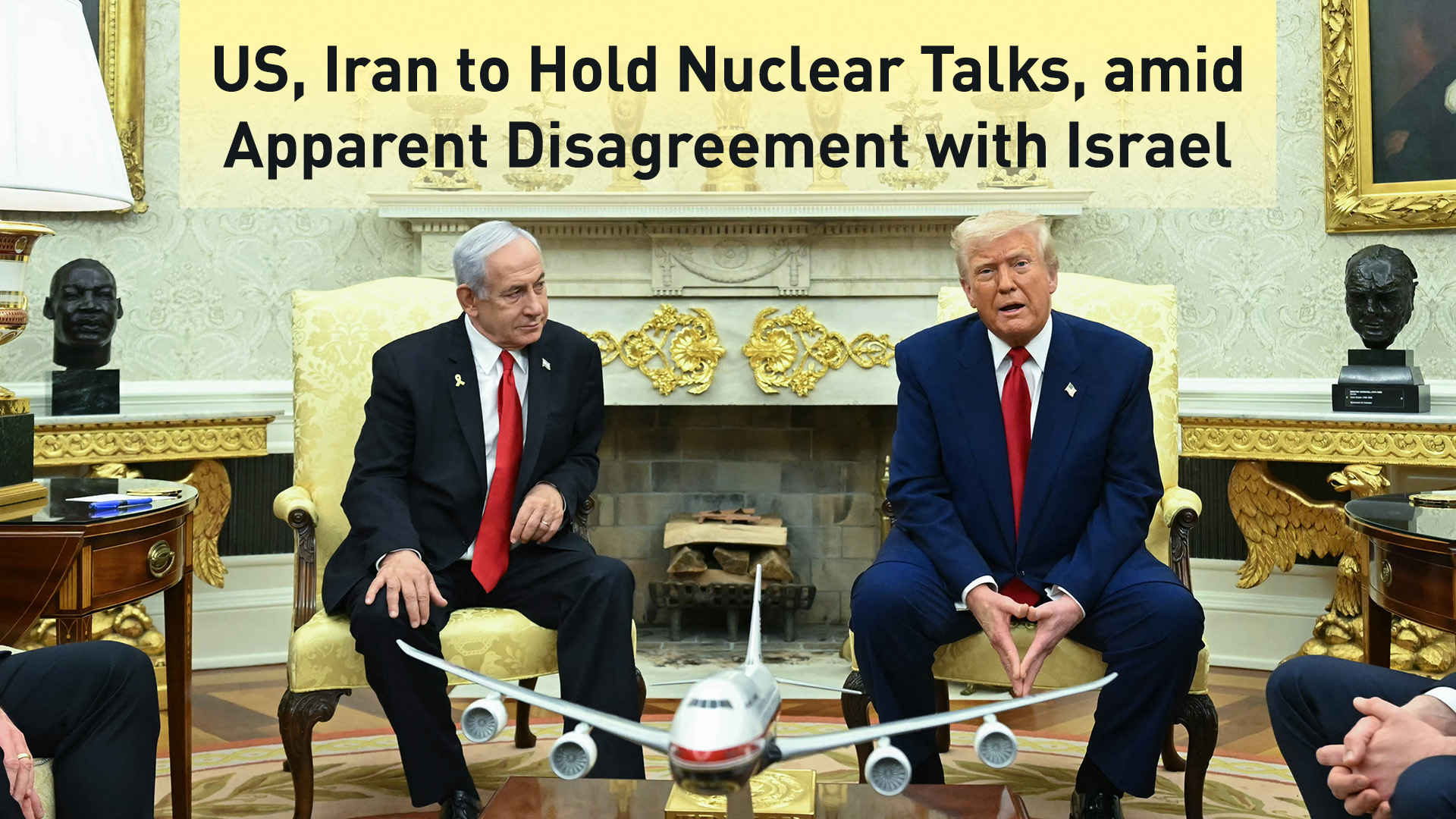US, Iran to Hold Nuclear Talks, amid Apparent Disagreement with Israel
It remains to be seen how the talks will be conducted and what, if any, results they will produce.

WASHINGTON DC, United States (Kurdistan 24) - Speaking at the White House on Monday afternoon, following a meeting with Israeli Prime Minister, Benjamin Netanyahu, U.S. President Donald Trump made the surprise announcement that the U.S. and Iran would begin nuclear negotiations on Saturday.
Subsequently, Washington sources revealed that Trump envoy, Steve Witkoff, would lead the U.S. side in the negotiations.
However, the U.S. and Iranian announcements about the talks disputed their format. According to Trump, they would be “direct,” and they would be held at a high level.
Iranian officials then confirmed half of what Trump had said: there would be high-level talks. But they would be indirect—held in Oman, with Oman acting as mediator.
Thus, it is not clear what form the talks will take, but if they really are direct, it would represent something of an initial U.S. win.
Last month, in a letter, delivered through Oman to Iran’s Supreme Leader, Ayatollah Ali Khamenei, Trump proposed holding negotiations. Khamenei’s response, delivered back through Oman, was that Iran was open to indirect negotiations, but not direct talks.
Indeed, in an earlier exchange, on Feb. 4, shortly after his second term began, Trump issued an executive order, reestablishing the “maximum pressure” campaign that he had pursued during his first term.
Khamenei responded to Trump’s executive order, with a strongly critical statement, saying that negotiations with the U.S. “are not intelligent, wise or honorable.”
Trump’s Surprise Announcement: Direct Talks with Iran—but Israel not supportive?
While Trump’s announcement of the start of a new round of talks was surprising, so, too, was the apparent gap between the U.S. and Israeli positions.
Trump and Netanyahu have a close relationship, but the Israeli Prime Minister did not seem supportive of the idea of the U.S. renewing nuclear negotiations with Iran.
Trump invited Netanyahu on relatively short notice to return to Washington for his second visit in just two and a half months—the only foreign leader to have visited the U.S twice during Trump’s second term.
Thus, Netanyahu “flew unexpectedly from Budapest to DC,” The Times of Israel reported, in order to meet with Trump on Monday.
Trump and Netanyahu were supposed to hold a press conference after their meeting, but it was cancelled, which seemed to suggest some problem had arisen.
Instead, Trump and Netanyahu held an impromptu press conference with a smaller number of journalists in the Oval Office. Trump dominated the discussion, while Netanyahu was comparatively silent.
According to informed sources, Netanyahu, a long-term hawk on Iran, did not get the green light from Trump to bomb Iran, which he had been seeking. Instead, Netanyahu was left with little choice, but to accept Trump’s announcement of the imminent start of U.S. talks with Iran.
Iran: Talks with U.S. Are Indirect
Soon after Trump’s announcement, an anonymous senior Iranian official told Reuters that there would be talks, but they would be indirect, and Oman would act as the mediator.
In addition, Araghchi posted a note on X making a similar point. “Iran and the United States will meet in Oman on Saturday for indirect high-level talks,” he stated. “It is as much an opportunity as it is a test. The ball is in America's court.”
Araghchi succinctly summarized Tehran’s position: the negotiations will begin with indirect talks, with Oman acting as intermediary. If the U.S. shows serious intent and good will—in Tehran’s view—the format can shift to direct talks.
So it remains to be seen, just how these negotiations will be conducted and how they will develop. They could reduce tensions and produce a major breakthrough. Or. alternatively, they could just highlight the differences between the two sides, break down quickly, and last for just a few days.